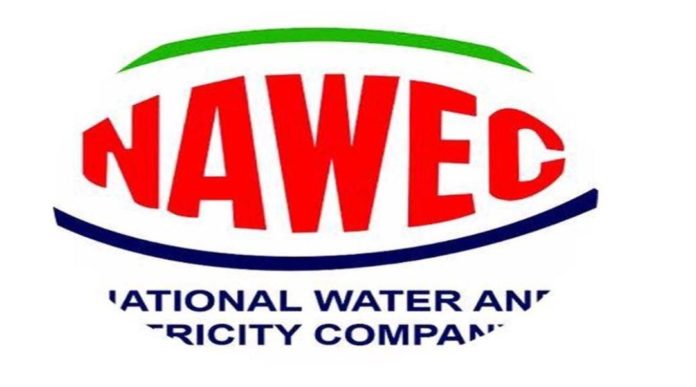By Kebba Jeffang
The Managing Director of the National Water and Electricity Company (NAWEC), Baba Fatajo, has disclosed that the nation’s Utility Company pays over three million dalasi to the Senegalese power supplier SENELEC monthly, as expenses for rural border electrification.
Fatajo told journalists at a press conference in their Kanifing office on Thursday March 22nd, that the deal is a good one in terms of expense and efficiency.
“Since we started, the invoices we are getting from SENELEC monthly, ranges a little over forty million CFA, equivalent to 3.5 million dalasi. If you take us just few months back when we were using diesel, we were operating for 13 hours and not 24 hours. On average what we used on fuel, was around 4.7 million dalasi, not to talk of expenditure on spare parts, lubricants or other operational costs,” he said. Fatajo said he is ready to challenge anyone who claim that the deal is a bad one to give documentary evidence of his assertions. He justified that the rural supply is more of social service as NAWEC has not been recovering its operating cost to consumers in the area.
“We have looked at this and came up with ways of solving the problem. We went into a partnership with a sister utility Company in Senegal, SENELEC, in the form of cross border electrification,” he said. Fatajo insisted that the concept of cross-border electrification is not a common cooperation done throughout the world and even in our sub-region.
“We initiated this project way back in 2009 when we had a Memorandum of Understanding with SENELEC, with a view of cross-border electrification,” he said; that this did not materialize then due to the lack of the political will on the side of the previous government. He added: “We engaged SENELEC with a view of having cross border electrification which is in line with the regional integration strategy of ECOWAS member countries. ECOWAS had set up a special organization to harmonise the energy potentials in the region because it is huge and untapped,’’ he told journalists. He said ECOWAS envisaged the harmonization of the activities of the various utility Companies for such energy potentials to be tapped.
“When we made this suggestion to the West African Power Pool (WAPP), they embraced the idea and even funded a study to look at the borders between The Gambia and Senegal, with a view to have rural border electrifications,” he said, and recalled the previous attempt that failed to materialize during the Jammeh administration. He said an estimated 3.5 million dollars was the cost of the project; that WAPP mobilized the funds for implementation but it failed.
“The environment has changed now and we know that there is real opportunity for us to pick on this project and move on,” he said.
According to Fatajo, Ghana, Togo and Benin are all beneficiaries of cross-border electrification projects.
“That is how this thing came up and we started with Kerr Ayib. I am glad to say that for the first time in the history of this institution, we are able to supply that part of the country with twenty-four hours of uninterrupted electricity. Thanks to the deal, we are being able to increase operational hours in other areas too,” he said.
“We could not get anything better because we have a tariff that even the World Bank was surprised that we could negotiate such a deal. What we have negotiated is around 13.5 to 14 cents per kilo watts depending on the fluctuation of the currencies,’’ he said; that it is as a result of the deal that World Bank is financing the much needed extensions to make it happen.
“I think if this were a bad deal, they will be the first to raise the alarm,” he said.
Regarding the Turkish Kar Power Ship that was docked at the Banjul port since last week, Fatajo said they have negotiated and agreed on 14.11 US Cent per kilo watt of electricity.



















